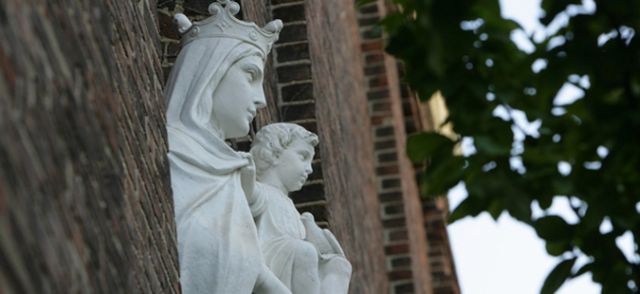
Religious Studies Faculty Publications
Document Type
Book Chapter
Publication Date
2012
Publication Source
Disability in the Christian Tradition
Abstract
Women are disabled. This is not simply the notion that some women have disabilities (in the way that I myself am a woman with a hearing loss), but that the very fact of being a woman is a disability. I have no doubt that there are people who might find this statement offensive. People with disabilities (as commonly understood) might find it so because it would seem to lessen difficulties, pains, and real encumbrances that disability entails. Some feminists might do so because it would seem to emphasize some of the very stereotypes of women that they wish to overcome: that women are weak and irrational.
Yet I do not make this statement to be provocative so much as to highlight that women's problems have been curiously similar to those experienced by people with disabilities. By many feminist accounts, Nancy Eiesland's quote above could easily apply to women, substituting "women" for "persons with disabilities:' The woman-disability connection exists in part because feminists often write about the ways in which women wrestle with bodies that are limiting and frustrating, and the ways in which Christians have contributed to poor theology and oppressive practices about those bodies. As Doreen Freeman writes, "Looking through the Hebrew and Christian scriptures and writings of the tradition, it is hard to tell women apart from disabled people" (Freeman 2002,74). Writers over the centuries have noted that women bleed, are missing (apparently) some key anatomy, and are not rational - just as those with disabilities have wounds that don't heal, may be missing some parts of their anatomy, and may not present themselves as rational. Feminist and disability theologians alike critique thought that suggests "normal" is a young, physically muscular, perfectly formed adult male body, which by default is rational. Bodies are especially difficult and frustrating for those who are patronized or persecuted because of them, so in this sense, perhaps women and people with disabilities have similar concerns and points to share with each other. Although thoughts about disability and women may well be intertwined, disability theologians and feminist theologians rarely reference each other except in passing.
Inclusive pages
427-441
ISBN/ISSN
978-0-8028-6602-8
Document Version
Published Version
Copyright
Copyright © 2012, Wm. B. Eerdmans Publishing Co.
Publisher
Wm. B. Eerdmans Publishing Co.
Place of Publication
Grand Rapids, MI
Peer Reviewed
yes
eCommons Citation
Bennett, Jana Marguerite, "Women, Disabled" (2012). Religious Studies Faculty Publications. 111.
https://ecommons.udayton.edu/rel_fac_pub/111
COinS



Comments
This chapter has been provided for download by permission of the publisher. Permission documentation is on file.
To read the entire book, visit an academic library or the publisher's website.